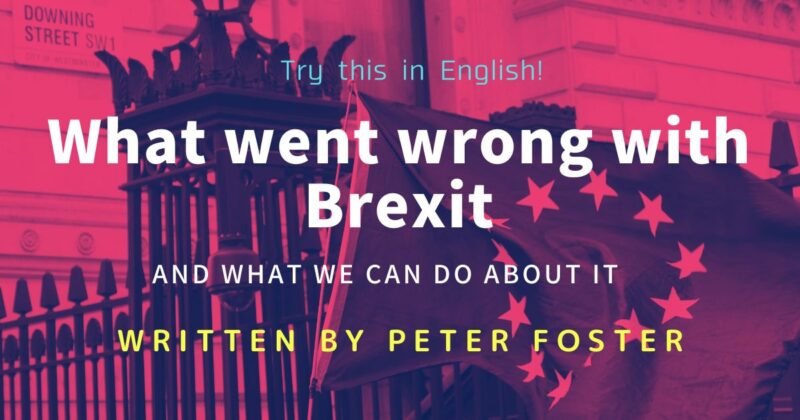Hello! It’s konkaz (@konkazuk) here.
The book I’m introducing this time is “WHAT WENT WRONG WITH BREXIT (and what we can do about it)” authored by veteran journalist Peter Foster.
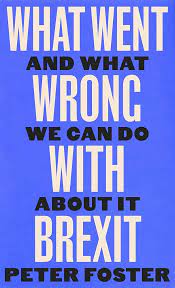
This relatively new book, published in 2023, is ideal for understanding the current situation in the United Kingdom.
The structure of the book is as follows:
the first two-thirds delve into…
“The background of Brexit and its specific impacts on the UK.”
And the remaining one-third is about…
“There’s no time to lament the devastating outcomes of Brexit anymore. We must accept the reality and tackle it head-on, or this country is going to sink!“
Reading this book thoroughly will provide you with insights into the exact reasons why Brexit is challenging, while also helping you learn a substantial amount of English vocabulary related to the economic aspects of the UK and Europe.
Anyway, this is a very brief summary, but if you’re interested, please keep reading.
What went wrong with Brexit
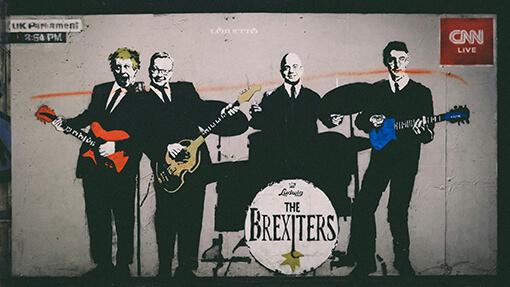
(from left: Boris Johnson, Michael Gove, Sajid Javid, and Jacob Rees-Mogg)
The EU (European Union) played a crucial role in establishing peace in post-war Europe.
By being part of this world’s largest economic bloc, the EU, Britain had already achieved its aim of becoming a “global Britain”.
However, *Brexiteers created an atmosphere suggesting that the EU was holding back the UK’s growth and appealed to the public multiple times with the message of “being liberated from the constraints of the EU to make Britain a global nation” in order to achieve Brexit.
(*Individuals or groups supporting withdrawal from the EU)
Consequently, driven by a sense of nostalgia for its imperial past and influenced by the Conservative Party’s narrative of “We’re special!” and “No more shackles!”, the nation succumbed to the contagion, resulting in a majority voting for “Brexit” in the 2016 EU withdrawal referendum.
…And indeed, we have departed.
Seven years have passed since then…
The bright future promised by the Conservative Party to the nation is nowhere to be seen.
Fuck Business!
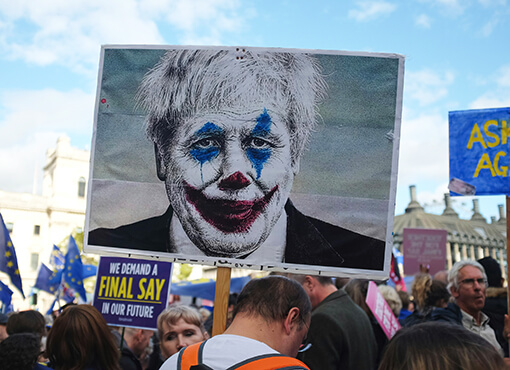
In 2018, Boris Johnson, who was then serving as Foreign Secretary, was asked, “Why don’t Brexiteers take into account the economic impact of Brexit?” His response was…
“Fuck business!” W
(Well, not a laughing matter at all…)

He evokes more the image of characters appearing in professional wrestling than politicians.
And… after Brexit was actually implemented, the aftermath of this “fuck business” attitude is evident in the suffering experienced by the citizens.
At the end of the day, it feels like the Conservative Party desired to create a patronizing image of “Britain is a superior country that doesn’t need the EU”, even if it meant ignoring our own industries and businesses...
While the UK was part of the EU, transporting goods to European countries could be done using the same process as domestic transportation within the UK. However, after Brexit, there is now a mountain of procedures (red tapes) required when entering EU territories. As a result, every time British businesses transport goods, they are forced to deal with this enormous mountain of procedures separately with each EU country.
Especially when it comes to food exports, the procedures are taking too long, resulting in the loss of freshness by the time they reach the market, diminishing their value and appeal by half.
Delays caused by lengthy procedures often lead to client dissatisfaction, resulting in customers drifting away. (Some procedures even take up to three months to receive approval!)
Consequently, small businesses have been pushed into a situation where they have no choice but to give up trading with European nations due to the issues of cost and time associated with procedures.
The slogan “Take back control,” which aimed to achieve freedom from regulations, ended up being quite ironic when it became apparent that being a member of the EU meant operating under a single set of rules with 28 countries — a situation that was already a form of “regulatory ease”.
Immigration issue
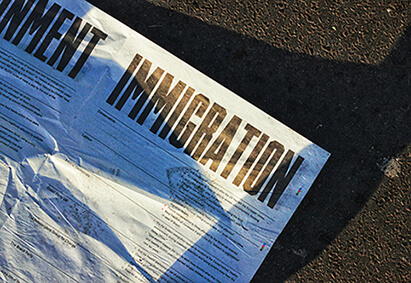
The background of Brexit is also closely tied to the “immigration problem“.
The UK joined the EU in 1973, but it was the “EC enlargement” in 2004 that triggered an influx of people from Eastern Europe and the Baltic States to the UK.
Following this event, simmering anti-immigrant sentiments among some British people gradually intensified.
EU citizens tend to move to countries with higher economic levels than their own in search of job opportunities, as travel within the EU is relatively easy.
Ever since the influx of immigrants began, certain British nationals have been concerned that foreign workers might snatch away their employment opportunities or lower their wages.
Therefore, during the 2016 Brexit referendum, Nigel Farage’s UK Independence Party (UKIP) and others frequently brought up the issue of immigration and it fueled anti-immigrant sentiments among low-wage British workers. As a result, it contributed to the internal division of opinions regarding the merits of Brexit.
…and what became clear as a result of the EU departure is that…
⚫ Immigration from Eastern European countries like Hungary and Poland had made significant contributions to the development of the UK economy.
⚫ Recent immigrants were generally harder workers compared to immigrants who had moved in the past.
⚫ The UK experienced a significant loss in the workforce, including drivers in the transportation sector, laborers at construction sites, and employees in service industries like hotels and restaurants.
According to a survey conducted by the British Chambers of Commerce at the beginning of 2023, 80% of small and medium-sized businesses in the country are currently experiencing significant difficulties in hiring employees.
This situation is hindering economic growth and causing a decline in domestic productivity.
Furthermore, immigration issues involve not only the movement of EU members but also the challenge of accepting war refugees.
Prior to Brexit in 2015, numerous refugees fleeing the Syrian civil war sought refuge by crossing the Mediterranean Sea and arriving in Greece and Italy. In response, the EU worked together to address this refugee crisis, contemplating actions such as refugee redistribution and providing support.
Within the EU’s international agreements, there exists the “Dublin Agreement,” which establishes regulations concerning the reception and handling of migrants and refugees.
Under this agreement, member states have the authority to return migrants to the “first country of entry” within the region, known as the first safe point of entry. However, following its departure from the EU, the UK would no longer be subject to these rules.
Among the refugees crossing from Calais, France to the UK by boat, there are also war refugees.
Brexiteers believe that Brexit will solve the immigration issue at the border, so to meet those expectations, the Conservative Party government led by Boris Johnson has proposed sending newly arriving refugees by plane to Rwanda in Africa.
However, in response to this, the “European Court of Human Rights” based in Strasbourg, France, raises a voice of “hold on, you can’t proceed with that!”.
The “European Court of Human Rights” is not affiliated with the EU, but it operates under the “Convention for the Protection of Human Rights and Fundamental Freedoms.” This convention is supported by a larger organization called the “Council of Europe,” which includes 46 countries, including the UK. Therefore, the UK cannot ignore this organization’s stance.
Thus, rather than gaining control over the border through Brexit, the actual situation has ended up worse than before the UK’s departure from the EU.
Impact on cultural exchange

The damage caused by Brexit extends beyond the economic aspects.
Because of the mutual imposition of “red tape” by the UK and the EU to regulate entry into their respective countries, cultural exchanges are affected as well.
Musicians
Unfortunately, unless they are heavyweight musicians with substantial financial backing, British musicians’ live performances within the EU are currently in a state of surrender.
This is due to procedures requiring documentation to prove that the vehicles transporting equipment are not intended for “sales purposes” or “export purposes,” as well as rules such as “cabotage,” which restrict the number of stops drivers can make for domestic travel. Consequently, musicians who must tour and make stops in various cities find themselves completely at a loss.
Au pair
“Au pair” is a program that facilitates international youth exchange by allowing young people to live with host families abroad, taking care of children and household chores in exchange for compensation from the host family to cover living expenses..
As a result, au pairs could learn real English in a natural setting with British families or through daily life in the UK. At the same time, the children of British families could also learn the language and culture of the au pair’s country, creating a win-win system.
However, after Brexit, au pairs found themselves out of luck as they were not included in the UK’s designated Shortage Occupation List (SOL) and were ineligible for the Skilled Worker Visa, which is reserved for individuals with specialized skills.
School trips
Before Brexit, students from EU countries who possessed a “National ID Card” could enter and exit the UK.
However, after Brexit, the UK government abolished the use of these cards for entry, leaving students who only had a National ID Card but no passport unable to enter the country.
Furthermore, the Boris Johnson government removed the group passport system from the list, making it impossible for entire classes of EU students to enter the country.
School trips were a fantastic opportunity for children from EU countries to learn about British culture, and it’s deeply regrettable that this is no longer possible. Moreover, such actions may result in a decline in the UK’s reputation among EU nations.
The diminishing trust in the UK government
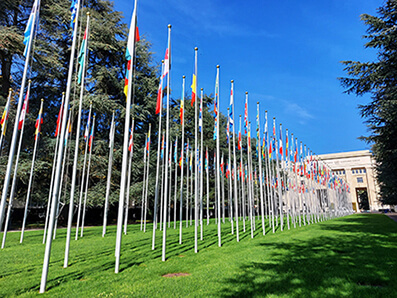
In an attempt to address the issues arising from the UK’s departure from the EU, including the previously mentioned proposal to send refugees to Rwanda, the Conservative Party government in Britain tried to maneuver the situation to their advantage.
However, resorting to such measures would entail inhumane actions or breaking rules, which would draw disapproval from the surrounding community.
With the UK already exhibiting a clear “cakeism” stance (seeking to have both options instead of making trade-offs), which has exhausted the EU’s patience, continuing such actions will only lead to further loss of international trust and a deteriorating position.
Furthermore, the government’s focus on justifying Brexit rather than rebuilding the nation’s infrastructure leads to a constant struggle to patch things up, often rushing negotiations to settle matters quickly. This approach puts the UK in an economically disadvantageous position.
While all this is happening, trust between the ministers running the country and the civil servants working under them is eroding, leading to a state of turmoil in Westminster.
In such a situation, the government only incurs the wrath of its citizens, and the future of the country becomes increasingly uncertain. Britain is undoubtedly being left behind by its counterparts.
Under these circumstances, the government is only fueling the anger of the citizens, making the future of the country even more uncertain, and ensuring that Britain is increasingly left behind by its counterparts.
What to do about it

In the latter section of the book, the focus shifts to the repercussions of Brexit, focusing on the question of “The country is falling apart due to Brexit, so what should we do from here?”.
The crucial point to address first is that…
if the government continues to view Brexit from a political or ideological standpoint rather than an economic perspective, the country will continue to decline rapidly.
In particular, the author emphasizes the need to take prompt action in the fields of the “chemical industry,” “automotive industry,” and “manufacturing sector,” which have been severely affected by Brexit despite the UK’s previous leadership. This is detailed in P73 to P80 of the previous chapter titled “What went wrong with Brexit.”
Is there a possibility of rejoining the EU?
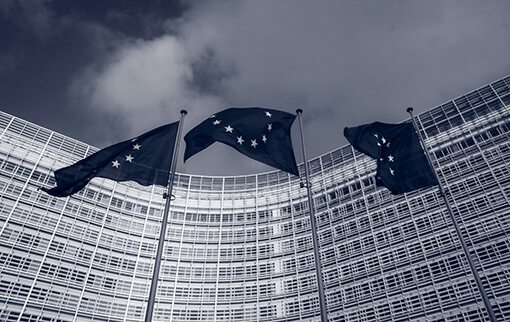
No, currently it seems unlikely.
The reason for this is that both of the UK’s major political parties, the Conservative Party and the Labour Party, have excluded this possibility.
According to public opinion polls, the majority of the population is believed to vote for “rejoining.” However, in reality, even if countries like France could be persuaded and rejoining was possible, it’s highly unlikely that the advantageous position within the EU that past leaders have fought for would be regained once the UK has left.
Conversely, it is speculated that the downside would be being forced to share the debt of other EU member states.
There is also the option of following the model of Norway, which involves not joining the EU but participating in the EU Single Market.
However, this position may not be suitable for the UK, as unlike Norway, which is extremely wealthy due to its oil and gas reserves despite its small size, the UK would need to export a variety of smaller goods, which could prove challenging.
Resetting the relationship with the EU

The first step should be to mend relationships with both the EU and the capitals of each EU member state.
Frankly, the way the UK has approached negotiations in recent years has been utterly appalling, leading to a heavily damaged reputation.

The tone is arrogant, Boris Johnson unlawfully closes down Parliament, walks out of UN conferences, and gets cozy with Donald Trump… Needless to say, the EU folks are pretty furious.
As time passed, the Prime Minister stepped down in the autumn of 2022, and Rishi Sunak took over. By February 2023, he had addressed the issues with the *Northern Ireland Protocol, aiming to make it easier for both the EU and the UK through “The Windsor Framework,” bringing about some positive developments.
*Northern Ireland Protocol;
A part of the EU Withdrawal Agreement that sets out the post-Brexit relationship. It was introduced due to concerns about the complexities that could arise when the EU-UK border aligns with the contentious boundary separating Northern Ireland and the Republic of Ireland. This alignment could require customs procedures for goods, causing potential complications.
Since Brexit occurred, there has been a change in personnel on the EU side who were dealing with the issue, yet the UK still requires a significant amount of time to regain trust from the EU.
The only way forward is to face reality squarely, remain humble, and continue to demonstrate sincerity.
2026 TCA Review

“TCA” stands for “The Trade and Cooperation Agreement,” which was signed between the UK and the EU at the end of December 2020, establishing rules for trade and cooperation post-Brexit.
The review of this “TCA” will take place in 2026, five years after its initial agreement.
And preceding this, there will be a general election in the UK, and the direction of the country’s future will depend on how the party in power handles the review of this “TCA”.
Here, the topics to be addressed include:
⚫ Clarifying procedures and regulations regarding the import and export of animals and animal-derived products.
⚫ Resolving visa issues to facilitate the movement of individuals, including those involved in cultural exchanges.
⚫ Linking the carbon pricing mechanisms of both the UK and the EU as part of environmental policies to address emissions such as carbon dioxide.
⚫ Improving VAT (Value Added Tax) arrangements.
⚫ The renegotiation of “Rules of origin” by the EU to verify whether exported goods are genuinely produced in the country of origin.
⚫ The renegotiation of the conduct of “conformity assessment” to evaluate whether products comply with EU regulations.
⚫ The review of “UK REACH,” launched by the UK in the field of chemistry as a counterpart to the EU’s “REACH,” which is considered obstructive to the country’s interests.
Finally, I believe the intention behind author Peter Foster’s publication of this book at this time is to encourage as many citizens as possible to read it, gain a solid understanding of the current situation in the UK, and carefully consider which political party to vote for in order to secure the future of the country.
Anyway, let’s hope for the best outcome and for the recovery of the UK economy. 🙏
This book is presently published only in English, but if you seek further details, feel free to explore the link below. 👇
This time, I introduced the book “WHAT WENT WRONG WITH BREXIT (and what we can do about it)” authored by Peter Foster.
Thank you for reading this blog post till the end.
Bye now,
konkaz
You can read this blog post in Japanese from the link below.
👉 Brexitの失敗と解決策:ピーター・フォスター氏の著書を読んでみた。

